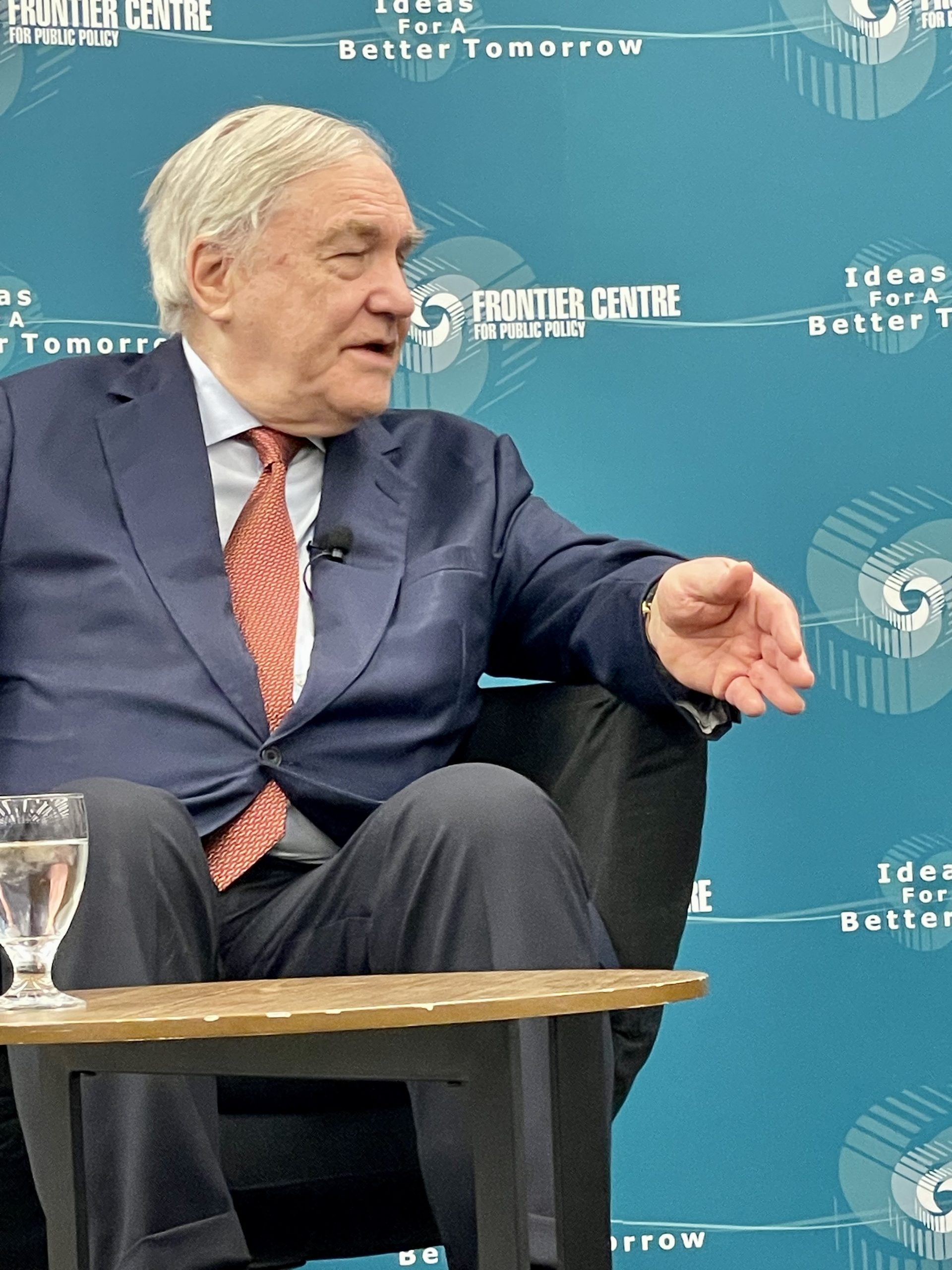Conrad Black, former publisher of the Daily Telegraph in London, shared memories of former British Prime Minister Margaret Thatcher at a recent dinner in Winnipeg. His comments demonstrate a woman worthy of emulation for her successes, whose downfall can also serve as a lesson for political leaders.
Black said Thatcher viewed the common person as her equal, not her inferior, something that endeared her to her office staff. He also remembered her as a person of acute political insight. He recalled, for example, how she scrutinized the voting results of those living in government-run low-income housing.
She said, “‘Alright, we’re going to privatize the housing with their occupants in them. We’re going to make it easy for them to own their own homes. Let’s just see what that does to voting intentions.’ And she was absolutely right.”
Black noticed that upon becoming owners, the residents “took better care, they spruced it up…She swept those polls… She had a remarkable talent for identifying a perfect slogan to simplify a problem, but not in a simplistic way. It wasn’t intellectually dishonest. It was absolutely honest… a piercing glimpse into the obvious… in a very very effective way.”
Black said Thatcher was “always grateful” that the U.S. had entered World War II. “To her, the alliance with the United States was absolutely necessary for the world, and she was unshakeable in her commitment.”
Thatcher allowed U.S. intermediate-range missiles on British soil. When asked if she was in favour of a nuclear-free Europe, she replied, “I am in favour of a war-free Europe and this is how we are going to get one.”
The answer was “absolute genius” in Black’s view, and “turned opinion on a dime. It was amazing. Of course, she was absolutely right. Deterrence, that’s the old Roman saying, ‘If you want peace, prepare for war.'”
“She was really responsible for deploying the Euro missiles. She completely ignored the protests. And she had no difficulty at all in parliamentary debate silencing the Labour Party. She was a highly intelligent woman, but she had a genius for simplifying things. Sometimes she oversimplified, but it was very, very effective.”
Black criticized Thatcher with the “utmost reluctance” given his admiration, but said towards the end of her prime ministership of 1979 to 1990, she began “to lose her sure judgment of the British middle class” and “some of her electoral intuition for self-defense.”
“It was incomprehensible to me that there would be the kind of unrest in her caucus that there apparently was. She was the first person to win three consecutive full-term majority elections in the United Kingdom since before the passage of the first Reform Act in 1832. She was the greatest Conservative vote getter in the history of that country,” Black said.
“She had done so much for Britain. I was stupefied by the apparent ingratitude of erroneous MPs who just attached themselves like limpets to her coattails to get into Westminster.”
When Black heard of caucus discontent, he entrusted Daily Telegraph editor Max Hastings with hiring more parliamentary correspondents. Their orders were to “take the Conservative MPs in groups of three or four, ply them with drinks, and find out what they really thought of the leadership of their party.
“I got overzealous here, and I myself took the chief whip out for lunch…He had no loyalty to her at all. And he was supposed to flip the votes for her.”
Black met Thatcher personally and warned of the extent of the problem without naming names.
“She said, ‘Rubbish, they’re a bunch of cowards. They talk, they say nonsense, and they cower. They won’t be a problem.'”
Black said, “That’s the problem, Prime Minister, they are cowards. Cowards are capable of any treachery.’ …It did happen, and it was a terrible thing. It was an absolutely unjust outcome.”
Thatcher opposed plans for a Euro, believing this would lead to a political union as well. This was one reason support for her unraveled. She survived two challenges to her leadership, the first in December 1989 and the second in November 1990. Caucus support in the second was just shy of 65%, so she resigned.
Black credits Thatcher, US President Ronald Reagan, and Pope John Paul II as the “principal figures” for the downfall of the Union of Soviet Socialistic Republics.
“Those three in particular won the Cold War, which was, as we all know, the greatest and most bloodless strategic victory in the history of the world. There were two superpowers and one of them fell, as Margaret said, like a souffle that crumbled,” Black said.
“The USSR disintegrated without a shot being fired. It was an astounding victory. Who would have imagined it and so quickly and so easily?”
Black called Thatcher “a great leader” and “a decisive figure” worthy of historic recognition.
“As time passes, it will be seen what an immense service she rendered to Great Britain, to the United Kingdom, and to the Western alliance.”
Lee Harding is a Research Fellow at the Frontier Centre for Public Policy.



